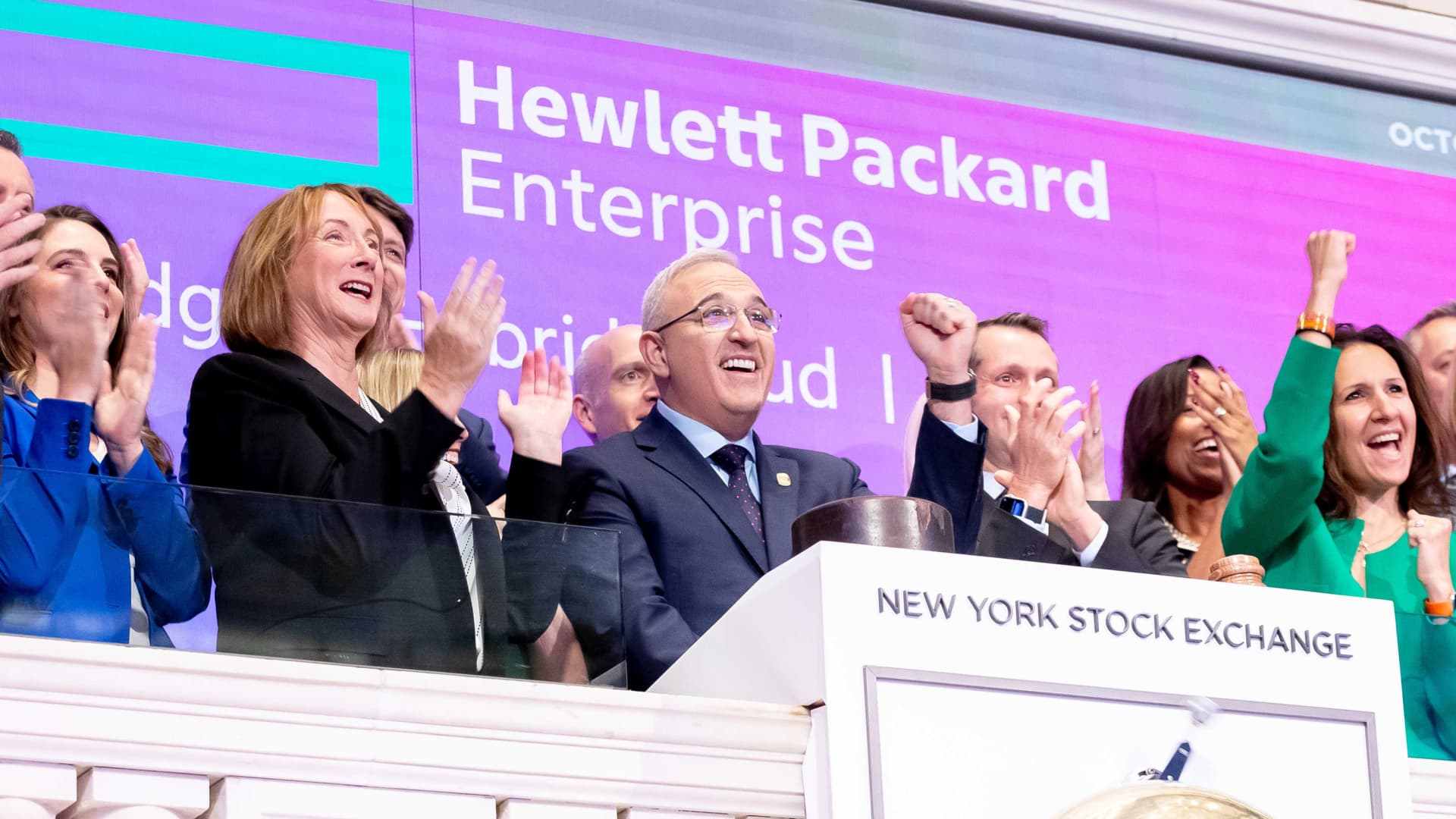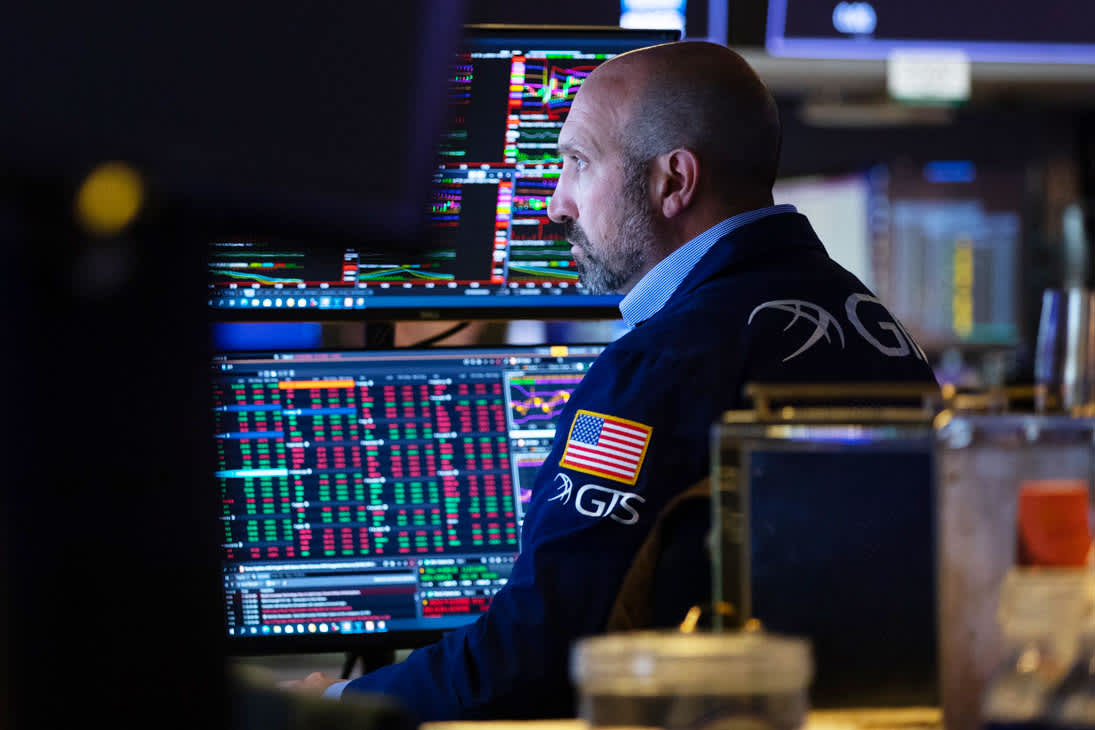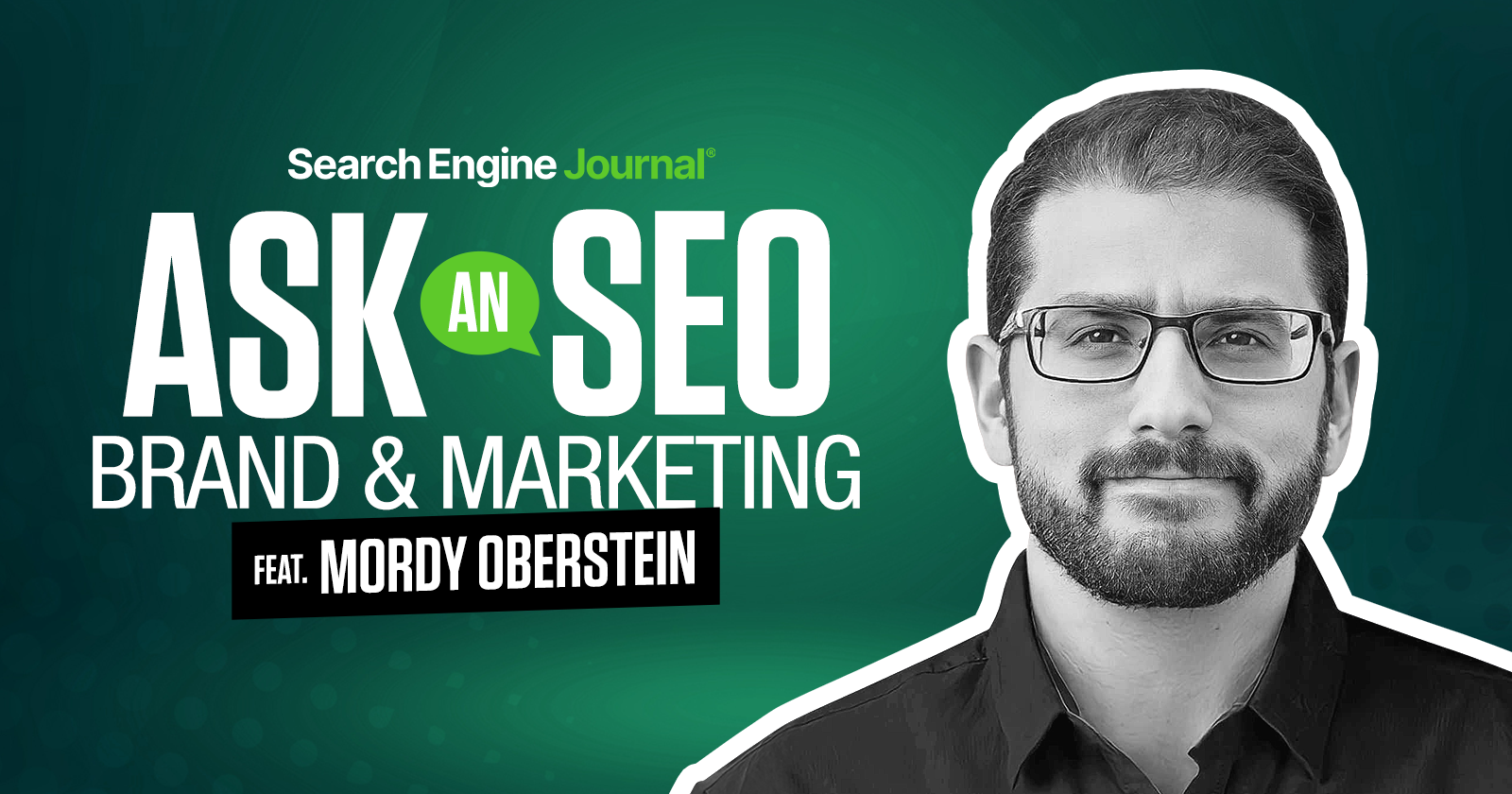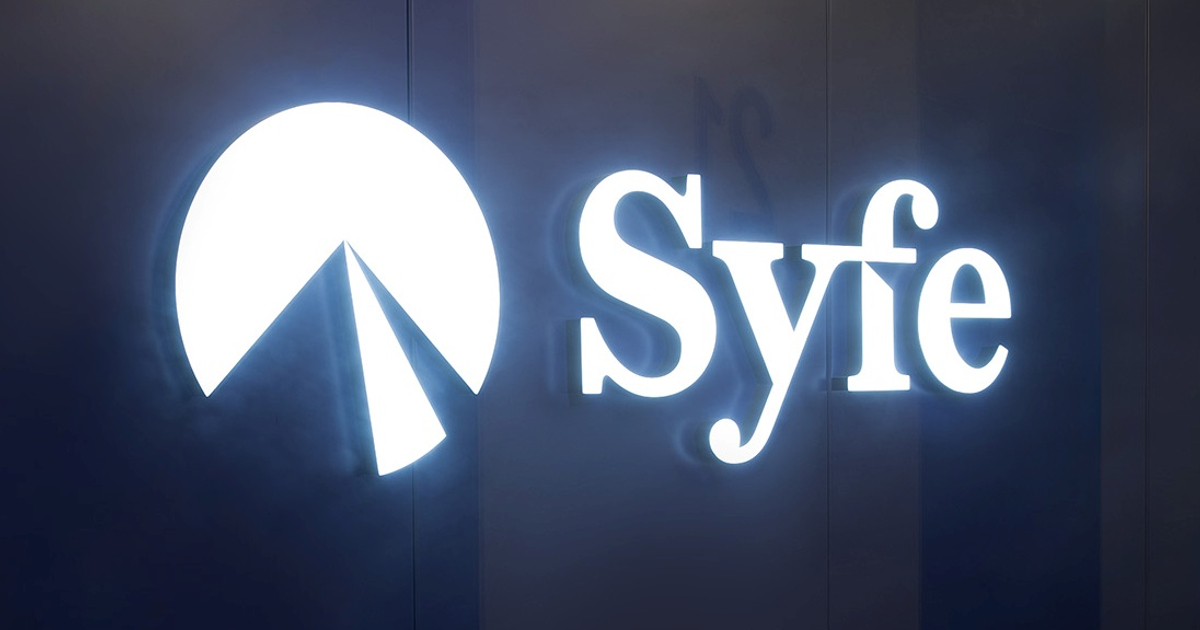Hewlett Packard Enterprise tops the 2024 JUST 100 list with market-leading worker benefits
Hewlett Packard Enterprise takes the No. 1 spot in the annual ranking of public companies on key stakeholder issues, topping last year's leader Bank of America.

Antonio Neri, CEO, Hewlett Packard Enterprise, at the NYSE, Oct. 19, 2023
Source: NYSE
Technology stocks have taken back the No. 1 spot in the JUST 100, an annual ranking of large public companies on issues of key importance to the American public, with Hewlett Packard Enterprise topping last year's No. 1 Bank of America.
HPE finished first among tech peers, a perennial sector leader in the JUST 100, in three core categories measured by Just Capital: workers, communities, and the environment. Its strong set of employee benefits, including the longest maternity and paternity leave of any company; its efforts within communities to bring workers back into the labor force; and its strict net zero goals and carbon emissions disclosures, were key to rising to the top of the list.
Analysis of worker pay, benefits and opportunities, more than any other measures, are critical to top list performance, with Just Capital's methodology based on annual polling of the American public and how Americans define "doing right by all stakeholders."
"Worker issues are still front and center," said Martin Whittaker, founding CEO at Just Capital, the nonprofit research firm founded by hedge fund billionaire Paul Tudor Jones and others to identify large public companies that outperform on stakeholder capitalism. The importance of workers has consistently risen in the polling data, and now represents roughly 41% of the JUST 100 methodology, with "paying a fair and living wage" the top issue within this category, representing just under 18% of the methodology.
"It's always workers and it's always fair pay," Whittaker said.
Career advancement opportunities, worker training and development, benefits and retention are other issues which helped push HPE and other companies higher in the 2024 JUST 100 rankings. All of these issues, Whittaker said, "cluster all around the questions of 'How good am I as an employer?'" he said.
"The competition, it's fierce for talent," said Kristin Major, chief people officer at HPE. She said while there has been attrition in tech, top talent in key roles is still being fought over. "It's also about retaining people who we've fought to get to come here, and we want to be happy here," she said.
HPE has offered 26 weeks of paid parental leave since 2019, tied for longest of any company in the Russell 1000 universe reviewed by Just Capital, and a part-time work option for employees transitioning back to professional life after that leave ends.
"A lot of companies don't have this benefit or are putting it together with disability," Major said. "It is significant and people talk to me about it when they come here," she added, citing roughly 4,000 workers who have taken advantage of the benefit over the past five years.
HPE also has a "resume gap" program for bringing workers back into the labor force cited by the nonprofit in its ranking research.
"We have a maniacal focus on driving operating efficiency and operating leverage for shareholders, but our people are our greatest asset, and ultimately deliver the value to shareholders. We are doubling down on our workforce" said HPE CEO Antonio Neri in a CNBC interview on Monday morning.

Tech's biggest names drop, but more chip stocks move up
While HPE has risen, other notable tech names have slipped in the annual rankings, including Apple, Microsoft and Alphabet. Of the three, all which remain in the JUST 100, only Apple finished among the top 20.
The JUST 100 experienced significant turnover at the top of the list this year, with six companies new to the top 10: Citigroup, The Cigna Group, Ecolab, Elevance Health, Advanced Micro Devices, and Micron Technology.
That's good news, according to the nonprofit.
Whittaker said it's not that former list leaders are losing their focus on key issues, but rather, more companies are joining them, and disclosing more of the information needed for the annual evaluation.
"Those companies aren't going backwards, but I do think competition is coming up," he said. "We know disclosure matters and disclosure is going up rapidly."
Disclosure on issues including pay equity by race and gender, and carbon emissions increased year over year across the Russell 1000 universe, according to Just Capital.
Whittaker said that's also the case with the key worker issues that are the most heavily weighted in the rankings. "The last three or so years marked an acceleration of companies investing in workers and communities, getting really creative, and I think there are companies in some other industries that are really getting their act together," he said.
"It's not as if they are less committed to it," Whittaker said of the previous years' top companies. "But companies can't afford to tread water and assume they will stay at the top."
More companies are also making the case to employees at a time of intense political division on ESG issues. And they are extending their core business proposition to other areas that help in the rankings.
Ecolab, which moved up 14 spots to finish in the top 10, has "really amped up their benefits," Whittaker said, with Just citing its parental leave policies, dependent care and flexible working hours, as well as a very high worker retention rate. "They are all-in on sustainability, but that spreads into other areas, such as being a leader on the workforce."
Emilio Tenuta, chief sustainability officer at Ecolab — which works with many major companies including top tech firms on water management that is critical in data centers, and will be even more so as advanced AI chips continue to increase in use — said getting employees across its operations, and co-located at data centers and manufacturing sites, to buy into its stakeholder approach to issues including net zero has been key. "It's EROI," Tenuta said. "It's the exponential return on investment. 25,000 employees in the field have that EROI understanding and mindset."
"We know ESG and any other three letter acronym has become polarizing," he said. "Organizations that are doing this because 'its' right thing to do' ... that intent will fall flat. The commitment needs to be bolstered by delivering on business performance and results, and if you can do that, you can counter the argument, and it gives us a chance to help associates, to say we are growing our business and also having an impact in the world," Tenuta added.
ESG, DEI controversy, AI issues
Whittaker said as the ESG space has become increasingly controversial — "weaponized" in the words of BlackRock CEO Larry Fink, which remained in the top 100, at No. 96, but was not the leader in its sector for the first time in five years — companies are trying to figure out how to talk about these issues in the context of their specific business while striving to be the best employer they can be. "They want to be fair and grow in the market and it's obvious if you have diverse leadership you get a better exchange of ideas and more insights, but there is no cookie-cutter approach to it," Whittaker said. "You need to understand your industry and stakeholders and customers. Those are deeper level actualizations and companies are moving into that phase now. It's a healthier way to look at DEI and ESG itself. "
"Over the last five years, Ecolab has been involved at the intersection of what's trending," Tenuta said. "Consumers are somewhat cynical about these goals. So we have to be more nuanced tying it to the business case," he added. Ecolab works with other market leaders including Dow, Starbucks, Microsoft and Meta (both of the latter two among tech clients) on the Water Resilience Coalition, a group of 37 companies representing $4.8 trillion.
Major said a key focus for HPE going forward that bridges a core tech sector business theme with its focus on workers is the role of AI in the labor market. "It will be across all businesses and functions, and I think to the extent we can help with learning and development and reskilling team members, it's the future, staying on top of it, and making sure they are educated. We are getting inquiries in gen AI. Employees are looking ahead and saying they want to stay relevant."
In a CNBC interview on Monday morning with HPE's CEO, Paul Tudor Jones cited the productivity gains from AI as one of the two biggest issues for the economy (the nation's high debt level being the other). He expects productivity to as much as double from the recent norm, but taking those gains and distributing them throughout society will be a huge issue to maintain stability as tens of millions of jobs between now and 2030 become threatened.
Amid recent job losses in tech and stock market gains for companies like Meta tied to major cost-cutting initiative, Neri said future productivity from AI needs to be reinvested in the workforce. "We are living in an amazing time and these techs will help us be better at what we do, so we can lean back into those benefits for the workforce and value for shareholders," Neri said. "Skilling people to this new reality is a benefit."
Most important, according to Whittaker, is that companies that perform well on these core issues of creating value for stakeholders are also creating value for shareholders. "Our indices are crushing it," he said.
The JUST 100 Index that tracks the top 100 ranked companies has outperformed the Russell 1000 Equal Weighted Index by 38.5% since inception in 2019.
Full rankings and information for the JUST 100 are available from Just Capital.

 JimMin
JimMin 


























![8 steps to build your account-based marketing strategy [+ recommended tools]](https://www.hubspot.com/hubfs/account-based-marketing.webp)





